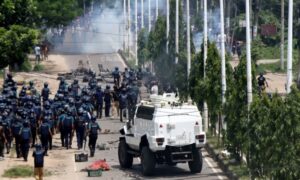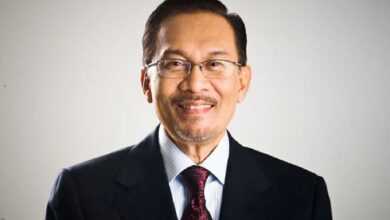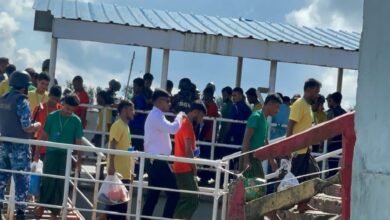UN letter to the Prime Minister of Bangladesh, to which the government responded
The United Nations Commission on Human Rights is deeply concerned about the arbitrary arrests and torture of protesters by law enforcement agencies surrounding the quota reform movement. To prevent such torture, to uphold the right to freedom of expression and peaceful assembly, reform of the overall law and order system is important.
United Nations High Commissioner for Human Rights Falker Türk made this comment in a letter written to Prime Minister Sheikh Hasina in the wake of the quota reform movement. He wrote that letter to the Prime Minister on July 23.
In response to the letter written to Prime Minister Sheikh Hasina, Foreign Secretary Masood Bin Momen sent a letter to Falker Turk on July 29 on behalf of the government. The letter urged the UN High Commissioner for Human Rights to be clear on the distinction between terrorist activities by third parties taking advantage of the situation and student movements. A judicial and administrative investigation of the incident is currently underway.
At this time, the United Nations Human Rights Commission and its related parties should refrain from making final comments about Bangladesh, otherwise it may influence people’s opinion, including the international media. The UN High Commissioner for Human Rights has also been requested to refrain from making any statement based on a one-sided report before the investigation.
In a letter written to the Prime Minister, the United Nations High Commissioner for Human Rights, Falker Turk, said that despite the almost complete shutdown of the Internet and disruption of communication systems, his office has received several reports of people being killed and injured around the student movement. According to the information received, during the suppression of the protests, law enforcement forces used excessive force, including the use of bullets, arbitrary arrests, detentions, torture and harassment. They also learned that protesters have been subjected to violent attacks by groups known to be pro-government. There was no protection for them. The deployment of paramilitary forces like the Armed Police, BGB and Rapid Action Battalions poses a further risk. They are also aware of the arrest of opposition activists, which has further worsened the situation.
The United Nations High Commissioner for Human Rights wrote, “Bangladesh is a staunch supporter of world peace and security as the country that deploys the largest manpower in the United Nations peacekeeping mission.” However, reports of excessive use of force, arbitrary arrests and torture during the protests have raised serious concerns.
Falker Turk urged Prime Minister Sheikh Hasina to conduct all operations of the law enforcement forces in accordance with international human rights standards to restore public confidence and create an environment conducive to public dialogue.
The Foreign Secretary responded to the letter of the United Nations High Commissioner for Human Rights. He said that the students have been protesting peacefully for three weeks regarding the quota reform. At this time, the government made efforts to contact the coordinators of the movement and asked them to wait for the completion of the Supreme Court proceedings. At this time, the law and order forces have ensured that the protestors can protest in a safe environment. Later some political parties, religious extremists and militant groups infiltrated this movement as third parties. And this third party was led by the BNP-Jamaate-e-Islami alliance and their student organizations. They mislead students by spreading misinformation and inciting slogans and inciting clashes and violence in some universities. When the situation worsened, some people were tragically killed and some serious atrocities took place under the guise of student agitation. In this situation, the movement of students went beyond their control. At that time the third party took over the movement and established a reign of terror and anarchy.
Explaining the incident in detail in the letter, the foreign secretary told the UN High Commissioner for Human Rights that the distinction between terrorist activities by third parties taking advantage of the situation and student movements should be clear. A judicial and administrative investigation of the incident is currently underway. At this time, the United Nations Human Rights Commission and its stakeholders are requested to refrain from making final comments about Bangladesh. So that people’s ideas including international media are not affected on the other side. He also requested to refrain from making any statement based on one-sided reports before investigation.
In his letter, the foreign secretary, in line with some local and international organizations, asked them to refrain from making derogatory comments about an independent judiciary and professional security forces. He said it would be unfortunate if the United Nations High Commission on Human Rights joins the internationally funded campaign of smearing security and law and order forces with the aim of creating political and social unrest in Bangladesh.





